Network Map
The Network Map app has advanced capabilities that provide enhanced visibility of connected devices in the Crystal Eye network. The app also enlists various options that could be used to manage devices on the Crystal Eye network.
The administrator can see all the devices connected to the Crystal Eye Network under the unmapped category of the Network app. These devices can be identified and then be mapped by assigning it device type, Device Nickname, and Vendor Name. After identifying a particular device on the Network Map application, the administrator can assign a Content Filter Policy to it.
The Network Map application is installed by default and can be accessed from the left-hand navigation panel.
Left-hand Navigation Panel > Network Control > Device Management > Network Map 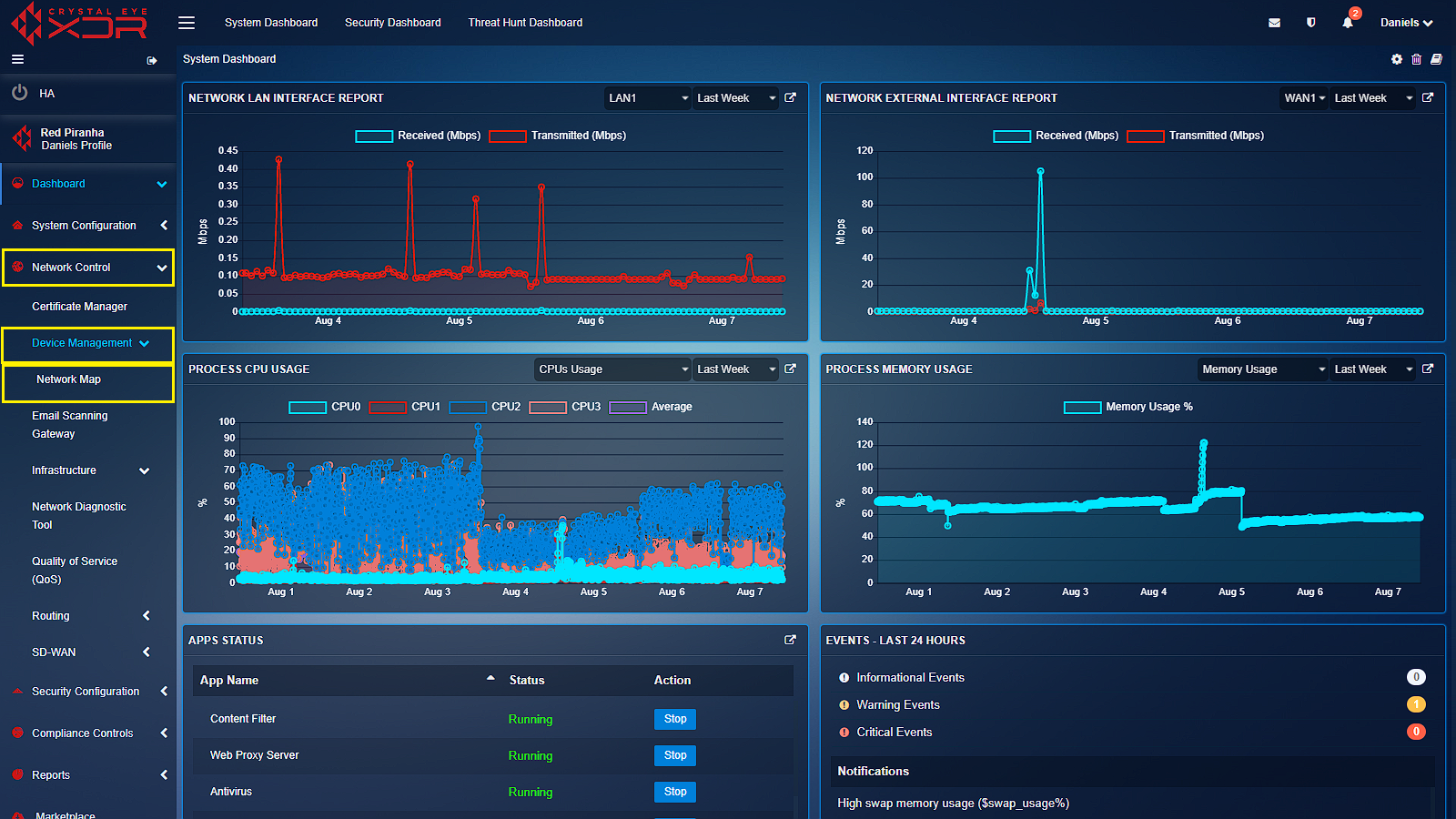 |
|---|
After a device is connected to the Crystal Eye device, it is visually represented in a Hub and Spoke diagram (Hub being the Crystal Eye Gateway and Spokes being the different devices connected to the Crystal Eye). Initially, all the devices connected to the Crystal Eye network will pop up in the unmapped category of the network map diagram. However, these unmapped devices can then be further categorized per device.
How to Assign Username, Nickname, Vendor, IP Address, and Device Type Using the Network Map Diagram in Crystal Eye Network?
Step 1: In the Network Map diagram under the Network Map section, click Unmapped Devices icon.
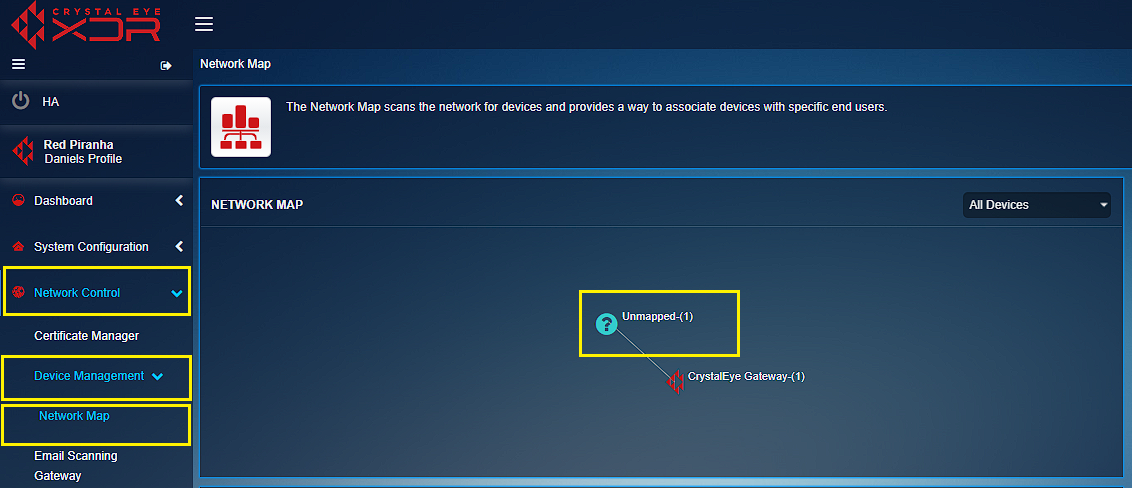
Step 2: You will now see a Hub and Spoke Diagram visually depicting the unmapped devices in the Crystal Eye network. Click the IP address of the device for which you want to assign a device type.
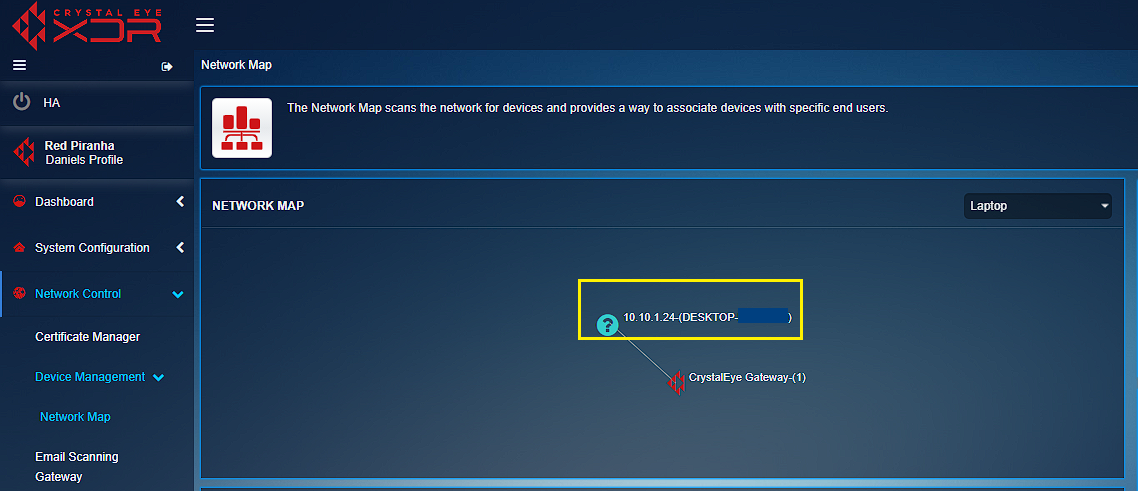
Step 3: You will now see a Select Action pop-up. Click the Edit/Map Device button.

Step 4: You will now see the Map Device pop-up. Select the Username, Nickname, Vendor and IP Address in the text box and enter the details as required.
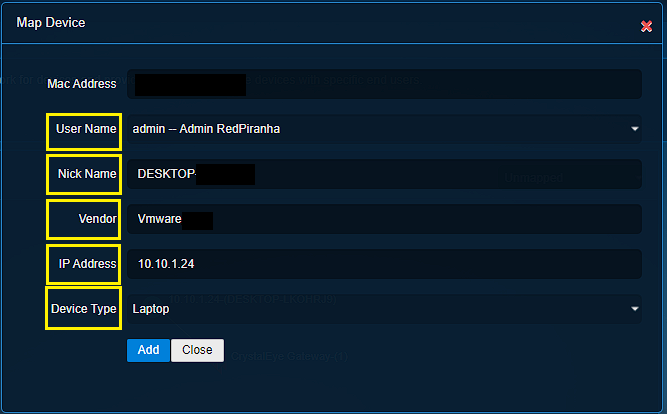
Step 5: Select the device type from the Device Type dropdown and click the Add button.
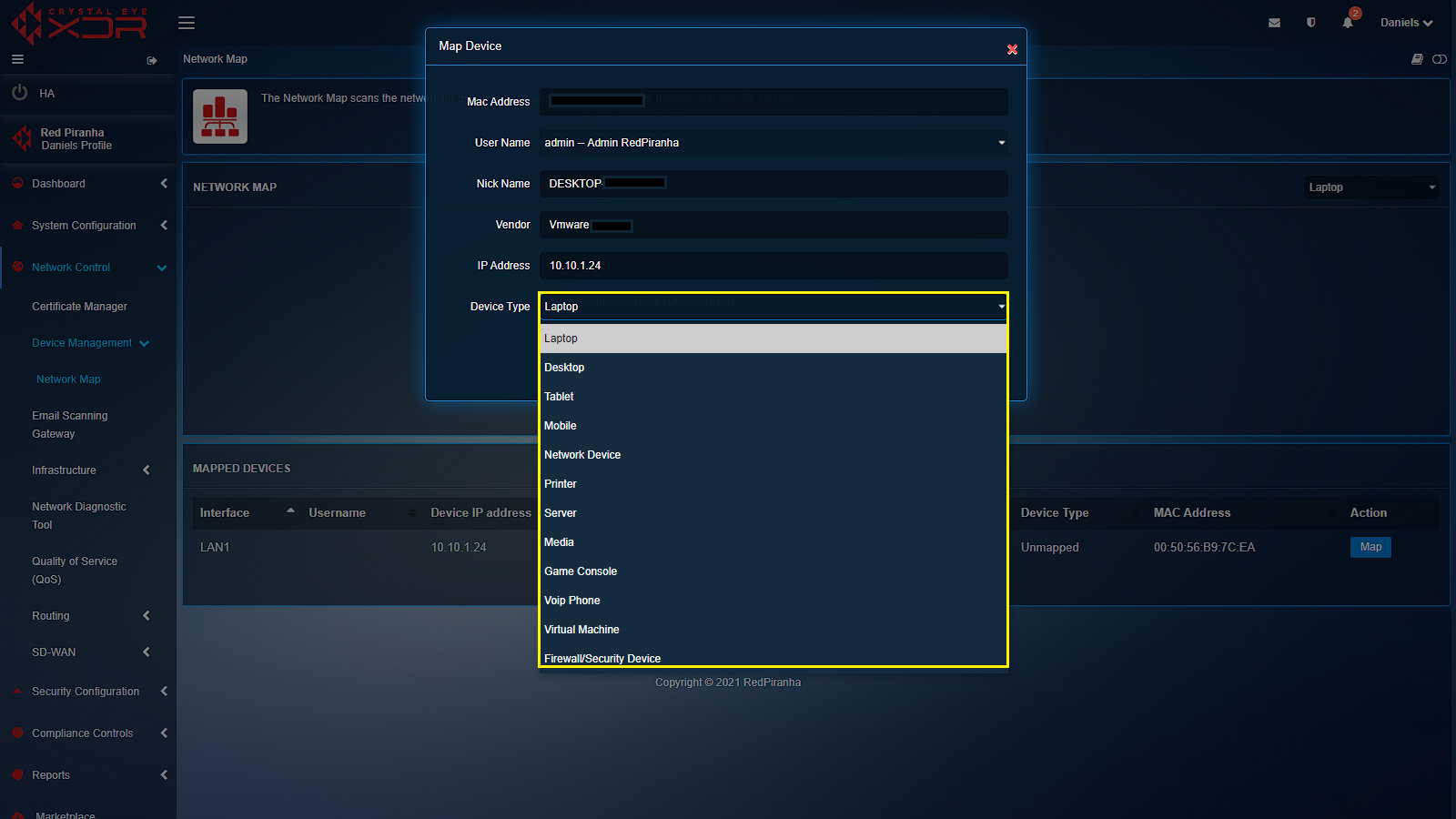
Alternate Method to Map the Devices in the CE XDR network
As an alternate method, you may also map the devices connected to the CE XDR by clicking the Map button in the Network Devices table.
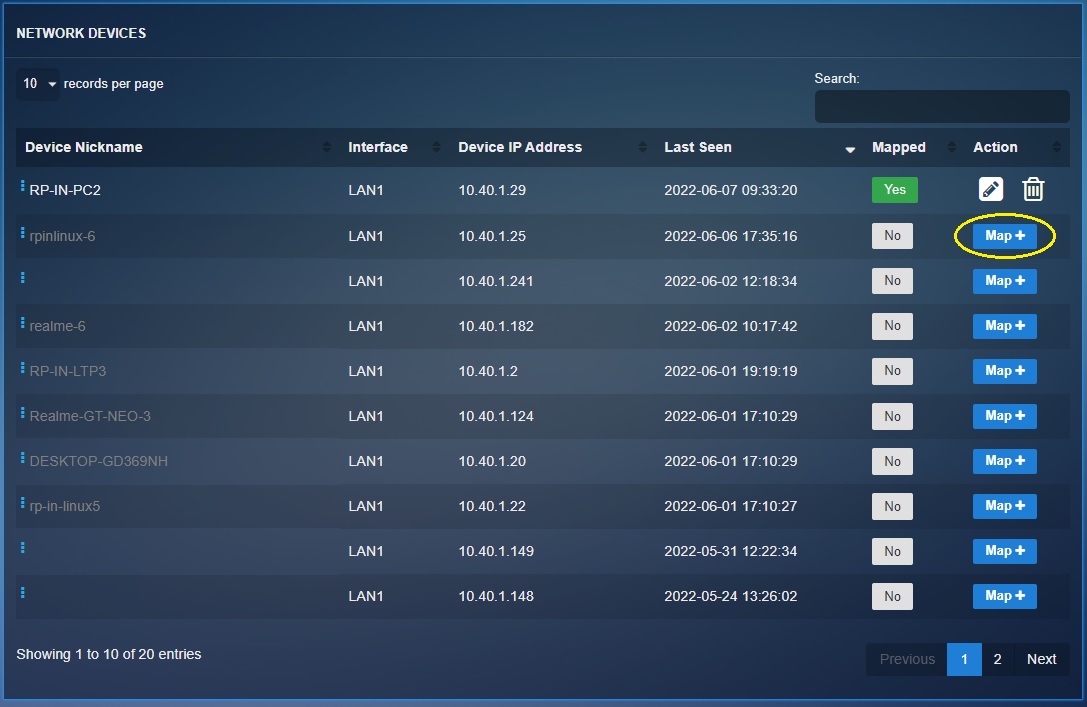
Administrators can easily map and then assign content filter policies to a particular device shown in the network map diagram. The policies that pop-up as options to choose from are the ones that were created in the Content Filter Engine App in the Security Configuration Category.
How to Assign a Content Filter Policy Using the Network Map Diagram in Crystal Eye Network?
Step 1: In the Network Map diagram under the Network Map section, click the icon of the device you want to assign the policy to. The icon description will change to show the IP address. Click the icon again.
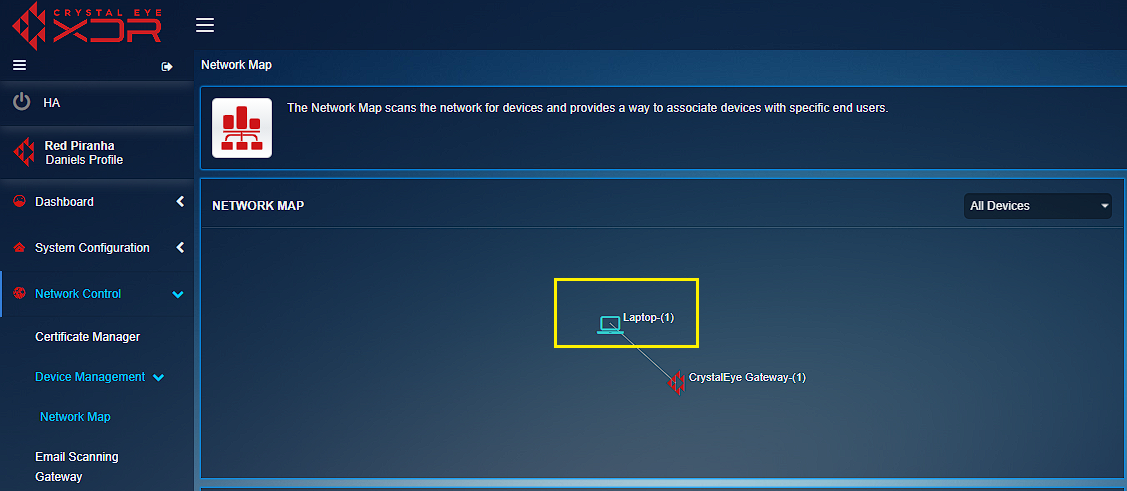
Step 2: You will now see a Select Action pop-up. Click the Assign Policy button.

Step 3: You will now see the Edit Content Filter Policy pop-up. Select the Policy Type from the dropdown and click the Update button.
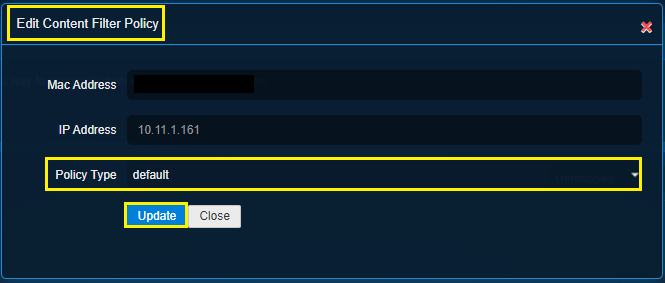
Note: The policies that are shown as options in the Edit Content Filter Policy pop-up are the policy names created in the Content Filter Engine application.